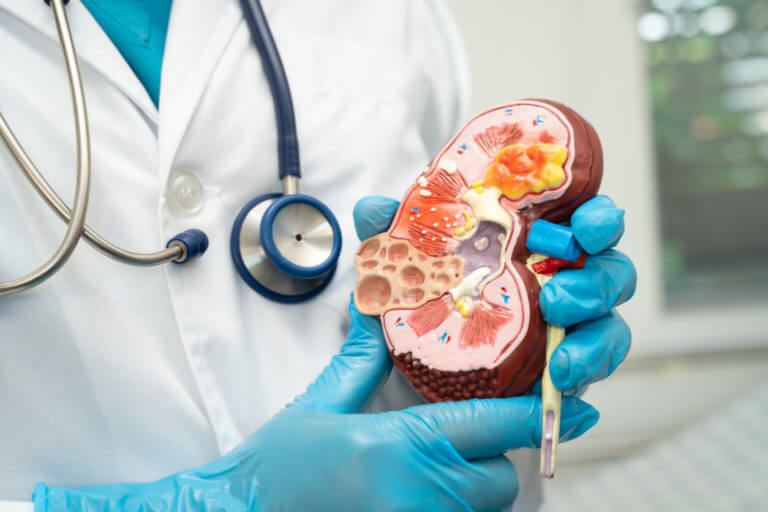
Chronic kidney disease (CKD) is a complex condition that impacts millions of people globally. CKD occurs when the kidneys lose their ability to effectively filter waste and excess fluids from the blood. This gradual loss of function can lead to symptoms such as fatigue, swelling, and shortness of breath. When left untreated, CKD can progress to more serious stages, including end-stage renal disease (ESRD).
A CKD diagnosis can feel overwhelming, but knowing the available medical treatments is essential.
1. Lifestyle Modifications and Diet Management
Making changes to your lifestyle and diet can play a big role in managing the early stages of CKD. These changes help improve your overall health, on top of helping you care for your kidneys. Consider trying out the following.
Eat Less Salt
One important step is cutting down on salt, as eating less salt helps control your blood pressure. This is crucial for protecting your kidneys.
Control Protein Intake
Another good change is limiting how much protein you eat. While your body needs protein, too much can make your kidneys work harder. Your doctor might recommend eating the right amount for your needs.
Stay Hydrated
Drinking plenty of water is also important because it helps your kidneys by flushing out toxins effectively. Your doctor can guide you on how much water is best for you.
Stop Smoking and Cut Down Alcohol
Quitting smoking and cutting back on alcohol are also key steps to take. Both activities damage your kidneys and health, so stopping them lowers the risks and helps you feel better overall.
2. Managing Blood Pressure and Diabetes
High blood pressure and diabetes are the leading causes of CKD. Treating these conditions is often at the heart of CKD management. Doctors use the following medications.
ACE Inhibitors and ARBs
Medications such as Lisinopril or Losartan reduce blood pressure and slow kidney damage. They also help manage protein levels in the urine.
Antihypertensive Drugs
Medications like beta-blockers or diuretics ensure that blood pressure remains in a healthy range.
Insulin or Diabetes Medication
For CKD patients with diabetes, managing blood glucose levels is critical. Insulin or other blood sugar medications can help prevent further kidney damage.
3. Treating Anemia
Anemia is a common problem for people with kidney disease. This is because the kidneys may produce less erythropoietin, a hormone that helps make red blood cells.
Without enough red blood cells, you may feel weak or tired due to anemia. To treat this condition, doctors may use erythropoiesis-stimulating agents (ESAs), like Epoetin alfa. It will help your body make more red blood cells and boost your energy.
Supplements are also an option. Iron can be taken by mouth or through an IV to address iron deficiencies common in kidney disease. Vitamin B12 and folate might help manage anemia caused by a lack of these nutrients.
With the right treatment, anemia can be controlled, helping you feel better and improving your quality of life.
4. Medication to Manage Symptoms
Chronic kidney disease (CKD) can bring about issues like itching, swelling, and problems with your bones. However, medical treatment for chronic kidney disease also covers managing these symptoms.
- High Phosphate Levels: High phosphate can harm your bones, so you may need to take phosphate binders.
- Swelling in the Limbs: Swelling is often caused by fluid buildup. Diuretics can help your body get rid of the extra fluid.
- Itching: Topical anti-itch creams or ointments can provide relief.
These treatments are aimed at improving comfort and helping you feel better as you manage your CKD.
5. Dialysis
When kidney function declines below 15% and reaches end-stage renal disease, dialysis becomes a necessary treatment. Dialysis performs the essential functions your kidneys can no longer manage. This includes removing waste, toxins, and excess fluids from the blood.
There are two main types of dialysis: hemodialysis and peritoneal dialysis. Your doctor will recommend the most appropriate type based on your medical condition. They will also take your personal preferences into account.
Hemodialysis
Hemodialysis involves using a machine and filter (dialyzer) to remove waste products and excess fluids. Most patients undergo this procedure several times a week at a dialysis center.
Peritoneal Dialysis
This uses the lining of your abdomen (peritoneum) and a cleansing solution to filter blood. It is often performed at home and offers more flexibility.
6. Kidney Transplant
A kidney transplant is often the best long-term solution for eligible patients with end-stage renal disease. A healthy kidney from a donor is transplanted into your body to restore proper function. Transplants can come from either living or deceased donors.
A transplant offers the potential for a longer, improved quality of life. However, it also requires a commitment to lifelong immunosuppressive medications. These help prevent the rejection of the donor kidney.
A kidney doctor near you will guide you through the transplant evaluation process. They will also discuss whether it is the right option for you.
Efficient Medical Treatment for Chronic Kidney Disease in West Orange, NJ
Living with chronic kidney disease can undoubtedly be challenging. However, advanced medical treatments offer hope and improved quality of life. By adopting lifestyle changes and managing underlying conditions, you can take control of your kidney health. Working closely with your healthcare team is also crucial for chronic care management near you.
At Hudson MD Group, we specialize in providing comprehensive care to CKD patients. We will be with you at every stage of your condition. Our expert team is here to guide you through your treatment options and help you achieve the best possible outcomes.
For more information or to schedule a consultation to start your personalized care plan, call us today at (973) 705-4914 or use our appointment request form.
We look forward to serving you!


